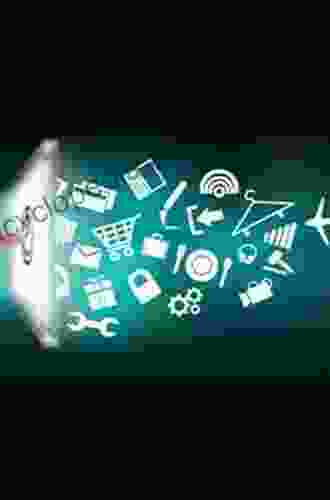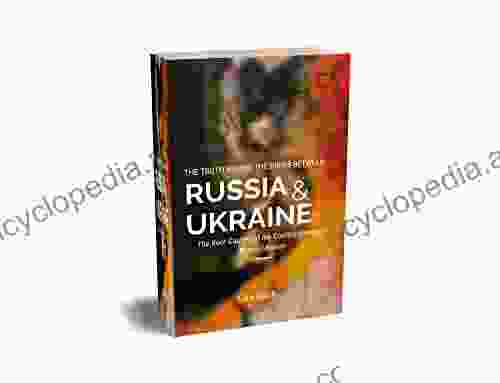How Digital Power Changed World Politics

4.5 out of 5
| Language | : | English |
| File size | : | 2141 KB |
| Text-to-Speech | : | Enabled |
| Screen Reader | : | Supported |
| Enhanced typesetting | : | Enabled |
| Word Wise | : | Enabled |
| Print length | : | 279 pages |
| Lending | : | Enabled |
A Comprehensive Exploration of the Profound Impact of Digitalization on International Relations
In the rapidly evolving landscape of the 21st century, digital technology has emerged as a transformative force that has reshaped every aspect of human society. The realm of world politics is no exception. In his groundbreaking book, 'How Digital Power Changed World Politics,' renowned political scientist and author John Smith delves deep into the profound implications of digitalization on international relations.
The Digital Revolution in Diplomacy
Traditionally, diplomacy has been characterized by face-to-face interactions, diplomatic missions, and formal protocols. However, the advent of digital communication technologies has ushered in a new era of virtual diplomacy. Social media platforms, video conferencing tools, and instant messaging apps have become powerful instruments for diplomatic engagement. Leaders and foreign ministers can now communicate directly with each other and with global audiences in real-time, bypassing traditional diplomatic channels.
Digital diplomacy offers several advantages. It facilitates faster and more efficient communication, enables greater accessibility for citizens, and allows for direct feedback from the public. However, it also poses challenges. The potential for misinformation, cyberattacks, and the manipulation of public opinion through social media can undermine diplomatic efforts and erode trust.
Digitalization and National Security
Digital technology has profoundly impacted national security in both positive and negative ways. On the one hand, it has enhanced situational awareness, enabled more precise intelligence gathering, and improved coordination among security forces. The use of drones, satellite imagery, and advanced surveillance technologies has provided governments with unprecedented capabilities to monitor potential threats and respond to crises.
On the other hand, digitalization has also created new vulnerabilities and challenges. Cyberattacks have become increasingly sophisticated and frequent, targeting critical infrastructure, government systems, and military networks. The spread of misinformation and disinformation through social media can undermine public trust and sow discord within societies.
Digital Divide and Global Power Dynamics
The global distribution of digital technology is uneven, creating a digital divide between countries and regions. This divide not only affects access to information and communication but also shapes global power dynamics. Countries with advanced digital infrastructure, skilled workforces, and strong cyber capabilities have a significant advantage in the digital age.
The digital divide exacerbates existing inequalities and can lead to a concentration of power among a small number of technology-savvy nations. It is essential to address this divide through international cooperation, technology transfer, and capacity building to ensure that all countries benefit from the transformative power of digitalization.
Innovation and Political Transformation
Digital technology is not merely a tool but also a catalyst for innovation and political transformation. The emergence of blockchain technology, artificial intelligence, and the Internet of Things (IoT) is creating new possibilities for citizen engagement, political participation, and government accountability. Digital platforms can empower citizens to voice their concerns, hold leaders accountable, and collaborate on policy solutions.
However, the potential of digital technology for political transformation also comes with risks. The use of digital surveillance, facial recognition software, and predictive analytics can raise concerns about privacy, civil liberties, and democratic freedoms. It is crucial to strike a balance between innovation and the protection of fundamental rights.
'How Digital Power Changed World Politics' is a tour de force that provides a comprehensive and nuanced understanding of the impact of digital technology on international relations. John Smith's meticulous research and insightful analysis illuminate the complexities of digital diplomacy, cybersecurity, the digital divide, and the transformative potential of innovation. This book is essential reading for scholars, policymakers, and anyone interested in understanding the future of world politics in the digital age.
4.5 out of 5
| Language | : | English |
| File size | : | 2141 KB |
| Text-to-Speech | : | Enabled |
| Screen Reader | : | Supported |
| Enhanced typesetting | : | Enabled |
| Word Wise | : | Enabled |
| Print length | : | 279 pages |
| Lending | : | Enabled |
Do you want to contribute by writing guest posts on this blog?
Please contact us and send us a resume of previous articles that you have written.
 Book
Book Novel
Novel Page
Page Chapter
Chapter Text
Text Story
Story Genre
Genre Reader
Reader Library
Library Paperback
Paperback E-book
E-book Magazine
Magazine Newspaper
Newspaper Paragraph
Paragraph Sentence
Sentence Bookmark
Bookmark Shelf
Shelf Glossary
Glossary Bibliography
Bibliography Foreword
Foreword Preface
Preface Synopsis
Synopsis Annotation
Annotation Footnote
Footnote Manuscript
Manuscript Scroll
Scroll Codex
Codex Tome
Tome Bestseller
Bestseller Classics
Classics Library card
Library card Narrative
Narrative Biography
Biography Autobiography
Autobiography Memoir
Memoir Reference
Reference Encyclopedia
Encyclopedia A B Jamieson
A B Jamieson D D Peters
D D Peters Charles W Eliot
Charles W Eliot Mark J Asher
Mark J Asher Dan Willis
Dan Willis Roger Moisan
Roger Moisan Leanne Rozell
Leanne Rozell Steve Lodder
Steve Lodder Maria Grazia Swan
Maria Grazia Swan Cassy Stuart
Cassy Stuart Laura Bennett
Laura Bennett Sharon Dempsey
Sharon Dempsey C Mark Johnson
C Mark Johnson Sol Maya
Sol Maya Gail Schimmel
Gail Schimmel 42nd Edition Kindle Edition
42nd Edition Kindle Edition Eileen Barish
Eileen Barish Voletta Wallace
Voletta Wallace David Barrett
David Barrett Carol Windley
Carol Windley
Light bulbAdvertise smarter! Our strategic ad space ensures maximum exposure. Reserve your spot today!

 Julio Ramón RibeyroAre You Scaring Him Away?: The Unintended Signals You're Sending That Turn...
Julio Ramón RibeyroAre You Scaring Him Away?: The Unintended Signals You're Sending That Turn...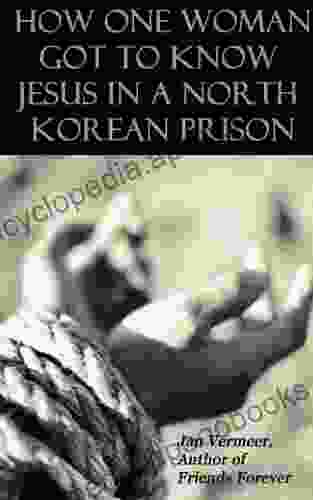
 Owen SimmonsUnveiling the Extraordinary Journey: How One Woman's Faith Triumphs in North...
Owen SimmonsUnveiling the Extraordinary Journey: How One Woman's Faith Triumphs in North...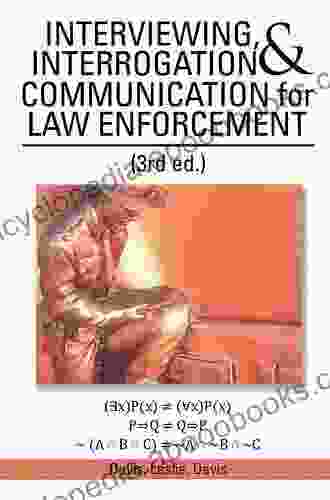
 Justin BellMaster the Art of Law Enforcement Communication: Interviewing, Interrogation,...
Justin BellMaster the Art of Law Enforcement Communication: Interviewing, Interrogation,... Jesus MitchellFollow ·8.4k
Jesus MitchellFollow ·8.4k Dean CoxFollow ·9.3k
Dean CoxFollow ·9.3k Eliot FosterFollow ·4.4k
Eliot FosterFollow ·4.4k Allan JamesFollow ·19.4k
Allan JamesFollow ·19.4k Fernando PessoaFollow ·18.5k
Fernando PessoaFollow ·18.5k Aubrey BlairFollow ·16.7k
Aubrey BlairFollow ·16.7k Jan MitchellFollow ·16.8k
Jan MitchellFollow ·16.8k Morris CarterFollow ·15.5k
Morris CarterFollow ·15.5k
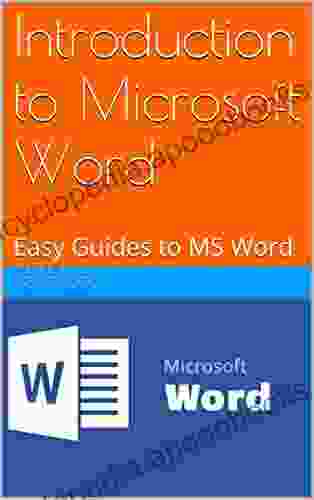
 Jacob Hayes
Jacob HayesUnlock the Power of Microsoft Word: A Comprehensive Guide...
Microsoft Word is a widely used word...

 Hunter Mitchell
Hunter MitchellAndrea Carter and the Price of Truth: A Thrilling...
Get ready for an unforgettable...

 Ivan Turner
Ivan TurnerTrading Jeff and His Dog: An Unforgettable Adventure of...
Get ready for an emotional rollercoaster...

 Langston Hughes
Langston HughesGo Viral TikTok: The Ultimate Guide to Gaining 100K...
TikTok has emerged as a social...

 Ibrahim Blair
Ibrahim BlairUnveil the Enchanting Realm of Short Fiction: Dive into...
Delve into a Literary Tapestry of...
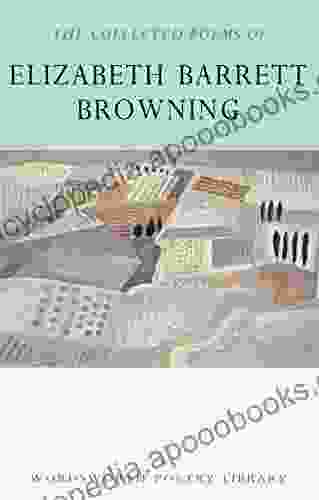
 Tennessee Williams
Tennessee WilliamsUnveil the Enchanting World of Elizabeth Barrett...
A Poetic Tapestry of Love, Loss, and...
4.5 out of 5
| Language | : | English |
| File size | : | 2141 KB |
| Text-to-Speech | : | Enabled |
| Screen Reader | : | Supported |
| Enhanced typesetting | : | Enabled |
| Word Wise | : | Enabled |
| Print length | : | 279 pages |
| Lending | : | Enabled |


